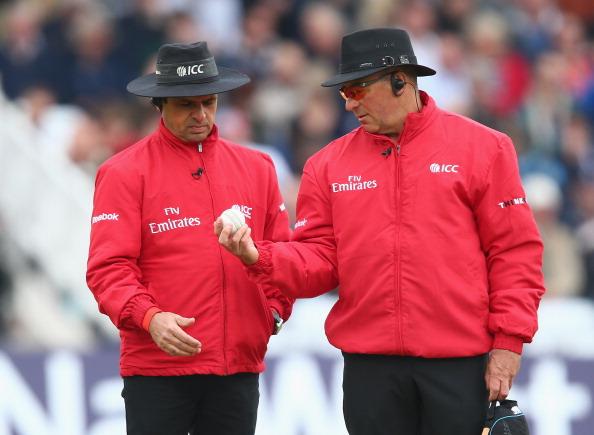The Umpiring conundrum - Who is to blame?
View : 190
2 Min Read


The Umpiring conundrum – Who is to blame?: Given the huge space media enjoys these days it has been sad to see the lack of attention to such a crucial facet like Umpiring in Cricket games all over the world. Be it the focus on umpire education programmes or the incentivisation of the profession of umpiring cricket bodies are equally guilty. But that should not take away the notice from the poor shows of international umpires at the world stage. We seem to be rather undermining of the fact that how crucial a role 1 or 2 umpiring decisions can play in a closely contested game. It is no good if we keep brushing it under the carpet. So it would be prudent if we try to analyze various aspects of international umpiring and the way forward:
The Umpiring conundrum – Who is to blame?:
1. Pseudo-respect:
For much too long a great degree of false (pseudo) respect has been attached to those two men on the ground and one in the TV box. This is detrimental not only to the health of the game but those growing up watching cricket. Detractors might say it is essential to ensure some semblance and sense in proceedings but how does that clash with carrying on with something which is utterly unfair. Even in the past there were several games which could have swung the other way after the umpire made a wrong decision. But is it fair for us to blame them? No it absolutely isn’t. Without any technology they perhaps tried their best and the errors they made were a proof that they are also mundane.
2. Why should player’s pay for Umpiring mistakes:
In Cricket, if a player makes a mistake by say, misjudging the length of a delivery and gets stumped, he or his team pays for it. Similarly if a bowler delivers sloppy balls, he is smashed to all corners. But this logic doesn’t hold good for the umpires. If they make mistakes either of the teams have to pay for it and at times pretty heavily. It just makes no sense to not reward or demote umpires based on performance. Some might argue, that the ICC does exactly that. I am sorry folks their internal assessment of umpires does not reflect in their actions at all. To start with none of the data of their analysis is made public and we hardly see any umpire being handed penalties for bad performances. Does that come in way of the so-called regard to the umpires. It shouldn’t if sense prevails. But sense and wisdom are words hard to find in the dictionaries of those running cricket administration these days.
Also Read – Top 5 Most controversial cricket umpires ever
3. DRS: Has it helped?:
The debate is open and there are no easy conclusions. Even after the introduction of the referral system, the on field umpiring standards haven’t improved substantially. Umpires nowadays know that they have that cushion of technology to fall on if they go wrong. But that is not such a bad thing actually. All what is needed is to give the umpires enough confidence that you make the calls based on personal judgement and the technology is only their to aid you and not compete with you. It is very easy for new umpires to get carried away with this phenomenon called DRS which is there to overturn obvious howlers. We can say what we want but results show that the percentage of correct decisions has gone up to 98 which was around 88 in the pre DRS era.
4. Does experience count?:
It is a no brainer that not only in umpiring but any facet of professional sport, there is no alternative for experience. But it is no guarantee for performance. The recently retired and an esteemed umpire of the elite panel Steve Davis, was pretty ordinary in the last few years of his career but remained to be the umpire’s representative at the ICC. Now how do you expect young umpires to look up to somebody who can not lead by example. This is only an example. The general trend of over-stretching the career of umpires is hazardous to say the least. Umpiring requires high fitness and sustainable concentration levels and is not a rope to be stretched beyond elasticity.
5. Neutral umpires – Time to review the move:
It is a well documented story how the ICC decided to have neutral umpires in Tests after allegations of favouritism by some teams. It might have changed perceptions and brought about a leap of faith in the game. But lack of quality umpires and their disproportionate inflow from different nations has presented some challenges as well. Given that most of the elite panel umpires come from either England and Australia, it makes the ICC’s task difficult to appoint, A grade umpires for the Ashes. With so much scrutiny of umpires and the technology to assist them, it would not be a bad idea to undo that rule and instead appoint deserving umpires for the high-profile contests without nationality constraints.
Download Our App